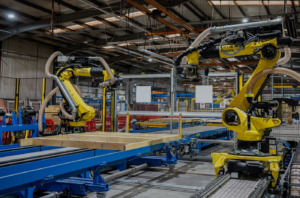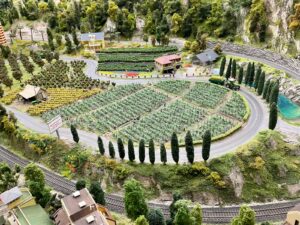Green Deal needs to be fronted by people we trust
If ever there was a time to bother with a public consultation, now is that time. After a very mild autumn, winter is starting to bite and the government is seeking views on the Green Deal – which aims to ensure all of us take responsibility for insulating our homes and adopt measures to reduce our energy use.
According to figures published in July, 24% of UK households are in fuel poverty – ie spending more than 10% of the household income on heating. With gas prices up a staggering 15.4% and electricity prices up by 4.5% (and only fixed until April 2012, when there’s every chance they’ll rise again), it’s highly likely that even more households are actually in fuel poverty. That’s around 6.5 million households.
Can we commit to making 2012 the last year that so many of our neighbours, friends and colleagues will have to shiver their way through the winter because the bills are impossibly high?
The government has mapped out a timetable showing that the Green Deal will be ready to launch by autumn 2012. It will then be up to the energy companies and supermarkets, who are being asked to sell home energy improvements to the general public, to set about delivering it.
This will probably take more time than I’d like – and the truth is many of the fuel poor are likely to be no better off by next winter. We should be insisting that the government keeps the pressure on the energy companies and other businesses to ensure the Green Deal does not stall.
The introduction to the consultation states that the Green Deal needs to be market-led. Now I’m a practical individual and I accept that this is a reflection of hard-core economic ideology and it is no surprise that these caveats need to be in place for any bill to make it into law.
However, the term ‘market-led’ suggests the new law would stimulate an entirely government-free response from both the public and industry. That’s a tad misleading because in this case the market forces that come to bear are highly political.
Why? Because however green this deal started out as, it is now fundamentally about lower energy use, based on the irrefutable fact that fossil fuels are running out. In my view any market based around energy is in need of careful scrutiny. So, in my response to the public consultation I’ll be asking the government to consider market correction. Especially in the realm of fuel costs and, perhaps even, VAT, where some intervention may be needed to hold prices down as much as possible.
A timely example of an energy policy that was designed to stimulate the public to respond is the domestic feed-in tariff.
For those coming late to this row, here’s a recap: the feed-in tariff gave people the opportunity to install and power their homes with PV panels in exchange for selling the surplus electricity back to the grid. The installation of domestic generation would cost the government nothing: people would pay to have their own PV panels installed or recoup the cost via their electricity company over 25 years. One variant of the deal meant that fuel-poor households would pay nothing for the installation of PV and would then benefit from drastically lower electricity bills in exchange for the electricity company keeping the payment for the surplus electricity.
But the government did not anticipate so much public take-up and is not sure it can afford to honour the pledge to pay the agreed price for the electricity people will generate. The unit price is still being debated and as a result the solar industry’s forward order book for individual households has frozen.
There are parallels between the feed-in tariff and the Green Deal. In bald terms, people will have to endure the hassle of having their homes improved and, while there are no up-front costs payable, they will be subject to higher energy bills than ever when they’ve done it in order to recoup the costs of installation. Yes, the deal is that the home improvements mean we’ll use less energy – but with energy prices so high and likely to just get higher and higher, Joe Public is hardly going to enter into the bargain without a loud grumble.
So another of my suggestions for the consultation is to offer some thoughts on how to sell this to the nation. We the people will decide on this one. It’ll be up to us to get it sorted, home by home, business by business. It’ll be up to those in rented accommodation to bring their landlords to account in order to ensure their properties are improved. It’ll be up to homeowners to take the initiative. But if this is to be market-led then everyone should have equal access to that market. So who’s going to do the persuading?
The Green Deal needs to be fronted by an army of people we trust – local traders, community and social enterprises, charities and voluntary groups. I’m far more likely to trust what my plumber or electrician tells me than what an energy company or supermarket tells me – so the government should focus on getting the message across to those trusted professionals we allow into our homes. It’s a hard sell but making our houses warmer and using less fossil fuel is the right thing to do – for the sake of our children if not for ourselves.
So, if you’ve never bothered responding to a public consultation before, please have a go. You’ll find it here and you’ve got until 18 January 2012 to do it. Let’s all press the case for making fuel poverty history.
















Very interesting piece. I too had similar feelings as to the awareness of the Green Deal. The lack of awareness over the range of green energy activities or house modifications is a problem. I think the key to triggering an interest from the public are a set of well-placed newspaper articles. Recently there have been solar PV articles in the Guardian and various others, which raised awareness. I’m sure that these newspapers will publish them as it will be a break from the majority of nonsensical content they produce now!